Peugeot 408 vs VW ID.7 Touring - Differences and prices compared
Compare performance (225 HP vs 340 HP), boot space and price (35100 £ vs 47100 £ ) at a glance. Find out which car is the better choice for you – Peugeot 408 or VW ID.7 Touring?
Costs and Efficiency:
Price and efficiency are key factors when choosing a car – and this is often where the real differences emerge.
Peugeot 408 has a noticeable advantage in terms of price – it starts at 35100 £ , while the VW ID.7 Touring costs 47100 £ . That’s a price difference of around 11944 £.
In terms of energy consumption, the advantage goes to the VW ID.7 Touring: with 14 kWh per 100 km, it’s hardly perceptible more efficient than the Peugeot 408 with 14.80 kWh. That’s a difference of about 0.80 kWh.
As for electric range, the VW ID.7 Touring performs noticeable better – achieving up to 689 km, about 234 km more than the Peugeot 408.
Engine and Performance:
Power, torque and acceleration are the classic benchmarks for car enthusiasts – and here, some clear differences start to show.
When it comes to engine power, the VW ID.7 Touring has a distinct edge – offering 340 HP compared to 225 HP. That’s roughly 115 HP more horsepower.
In acceleration from 0 to 100 km/h, the VW ID.7 Touring is clearly perceptible quicker – completing the sprint in 5.50 s, while the Peugeot 408 takes 7.20 s. That’s about 1.70 s faster.
In terms of top speed, the Peugeot 408 performs evident better – reaching 233 km/h, while the VW ID.7 Touring tops out at 180 km/h. The difference is around 53 km/h.
There’s also a difference in torque: VW ID.7 Touring pulls significantly stronger with 679 Nm compared to 360 Nm. That’s about 319 Nm difference.
Space and Everyday Use:
Whether family car or daily driver – which one offers more room, flexibility and comfort?
Both vehicles offer seating for 5 people.
In curb weight, Peugeot 408 is decisively lighter – 1544 kg compared to 2191 kg. The difference is around 647 kg.
In terms of boot space, the VW ID.7 Touring offers slightly more room – 605 L compared to 536 L. That’s a difference of about 69 L.
In maximum load capacity, the VW ID.7 Touring performs minimal better – up to 1714 L, which is about 131 L more than the Peugeot 408.
When it comes to payload, VW ID.7 Touring minimal takes the win – 465 kg compared to 456 kg. That’s a difference of about 9 kg.
Who comes out on top?
Overall, the VW ID.7 Touring shows itself to be is largely superior and secures the title of DriveDuel Champion.
It convinces with the more balanced overall package and proves to be the more versatile choice for everyday use.
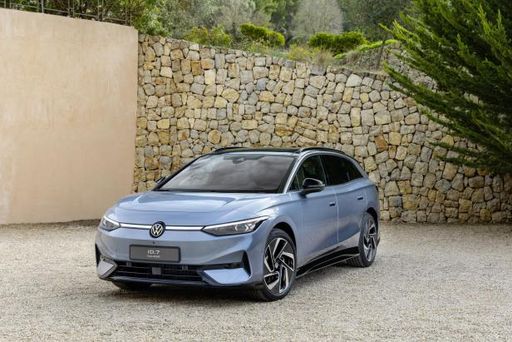
VW ID.7 Touring
Costs and Consumption
View detailed analysis
Engine and Performance
View detailed analysis
Dimensions and Body
View detailed analysis
Peugeot 408
The Peugeot 408 blends a coupe-like roofline with practical sensibility, delivering striking looks and a surprisingly airy, premium-feeling cabin. On the road it prefers comfort and poise over manic thrills, making it a smart, stylish choice for buyers who want something a bit different from the usual family hatchback.
details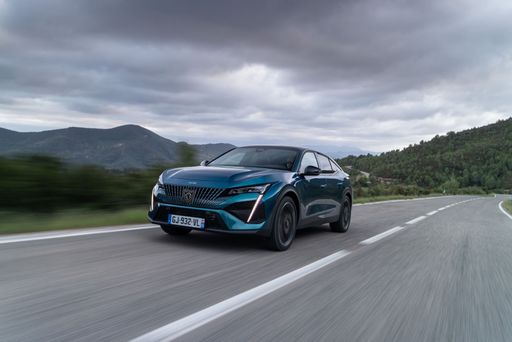
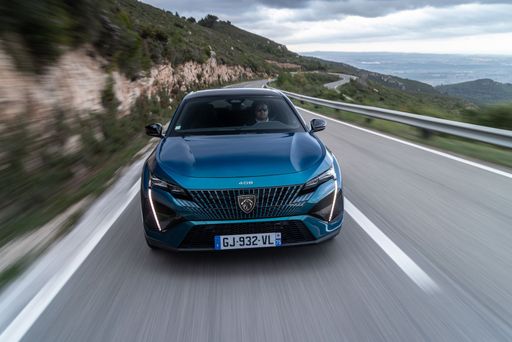
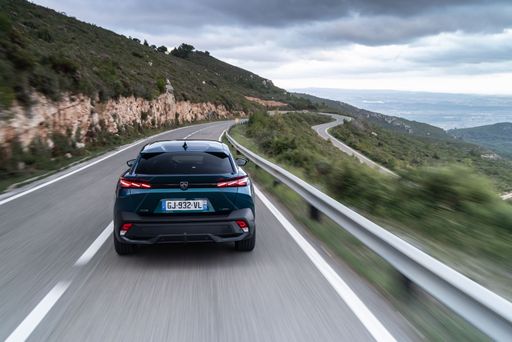
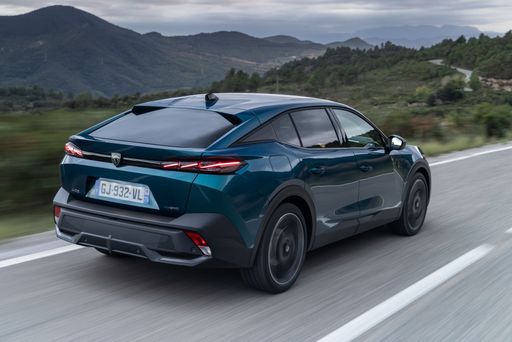
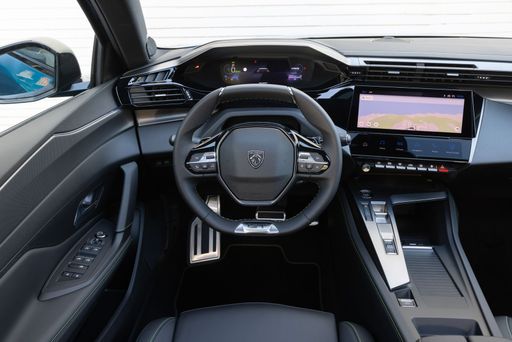
VW ID.7 Touring
The VW ID.7 Touring blends sleek, aerodynamic fastback looks with estate practicality, delivering an electric family car that looks grown-up and feels refined. Inside it's calm and spacious with clever storage and modern tech, swallowing suitcases and weekend plans with ease — a sensible, slightly flashy choice for buyers who want electric comfort without giving up practicality.
details
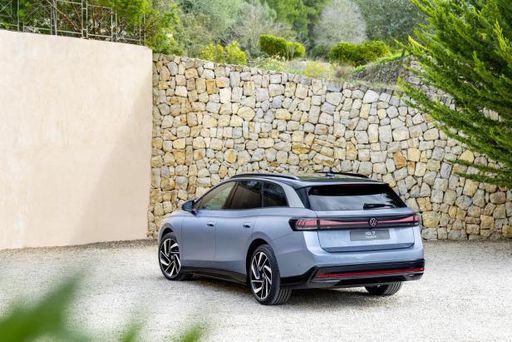
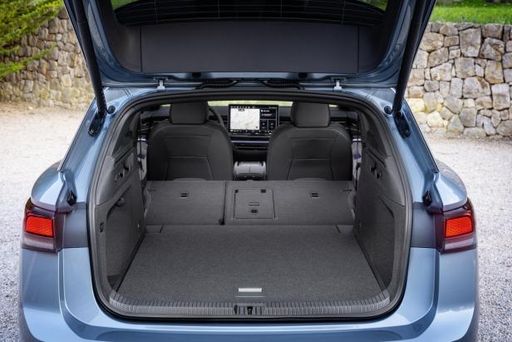
Costs and Consumption |
|
|---|---|
|
Price
35100 - 48000 £
|
Price
47100 - 54900 £
|
|
Consumption L/100km
2.7 - 5.1 L
|
Consumption L/100km
-
|
|
Consumption kWh/100km
14.80 kWh
|
Consumption kWh/100km
14 - 16.6 kWh
|
|
Electric Range
79 - 455 km
|
Electric Range
584 - 689 km
|
|
Battery Capacity
58.20 kWh
|
Battery Capacity
77 - 86 kWh
|
|
co2
0 - 114 g/km
|
co2
0 g/km
|
|
Fuel tank capacity
42 - 52 L
|
Fuel tank capacity
-
|
Dimensions and Body |
|
|---|---|
|
Body Type
SUV
|
Body Type
Estate
|
|
Seats
5
|
Seats
5
|
|
Doors
5
|
Doors
5
|
|
Curb weight
1544 - 1879 kg
|
Curb weight
2191 - 2336 kg
|
|
Trunk capacity
471 - 536 L
|
Trunk capacity
605 L
|
|
Length
4687 mm
|
Length
4961 mm
|
|
Width
1848 mm
|
Width
1862 mm
|
|
Height
1478 mm
|
Height
1549 - 1551 mm
|
|
Max trunk capacity
1528 - 1583 L
|
Max trunk capacity
1714 L
|
|
Payload
371 - 456 kg
|
Payload
459 - 465 kg
|
Engine and Performance |
|
|---|---|
|
Engine Type
Electric, Petrol MHEV, Plugin Hybrid
|
Engine Type
Electric
|
|
Transmission
Automatic
|
Transmission
Automatic
|
|
Transmission Detail
Reduction Gearbox, Dual-Clutch Automatic
|
Transmission Detail
Reduction Gearbox
|
|
Drive Type
Front-Wheel Drive
|
Drive Type
Rear-Wheel Drive, All-Wheel Drive
|
|
Power HP
145 - 225 HP
|
Power HP
286 - 340 HP
|
|
Acceleration 0-100km/h
7.2 - 9.4 s
|
Acceleration 0-100km/h
5.5 - 6.7 s
|
|
Max Speed
160 - 233 km/h
|
Max Speed
180 km/h
|
|
Torque
230 - 360 Nm
|
Torque
545 - 679 Nm
|
|
Number of Cylinders
4
|
Number of Cylinders
-
|
|
Power kW
107 - 165 kW
|
Power kW
210 - 250 kW
|
|
Engine capacity
1199 - 1598 cm3
|
Engine capacity
-
|
General |
|
|---|---|
|
Model Year
2024 - 2025
|
Model Year
2024
|
|
CO2 Efficiency Class
A, C, B
|
CO2 Efficiency Class
A
|
|
Brand
Peugeot
|
Brand
VW
|
What drivetrain options does the Peugeot 408 have?
The Peugeot 408 is offered with Front-Wheel Drive.




